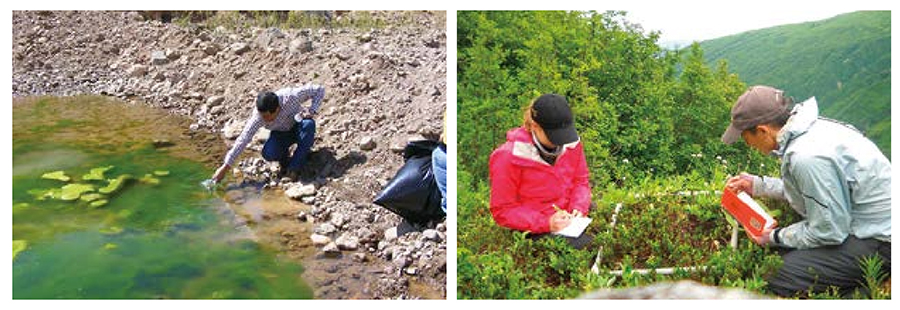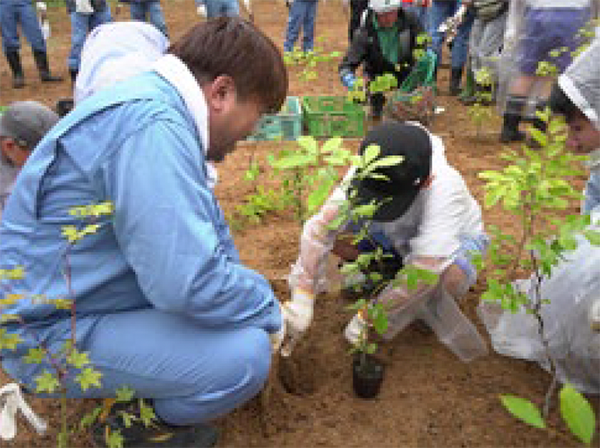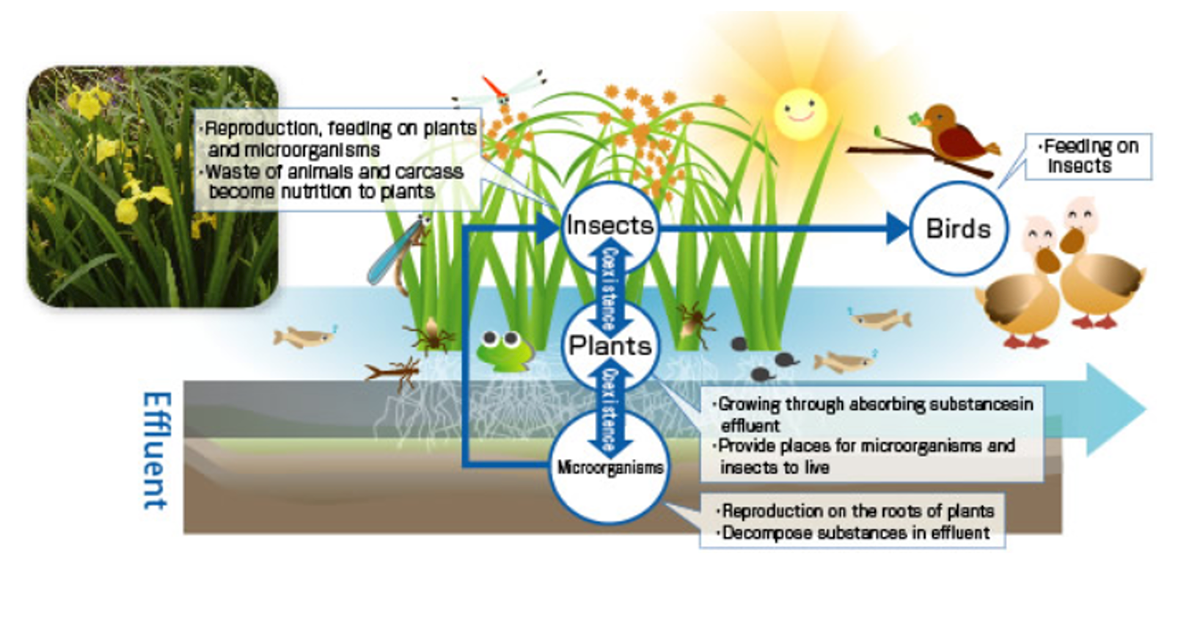ESG Library
Biodiversity
Basic Approach
The Dowa Group’s business activities are dependent on the benefits of biodiversity and natural capital, and at the same time, may have various impacts on them. In accordance with our Basic Policy on Biodiversity, we give due consideration to natural capital, including biodiversity, and strive to maintain, preserve, and restore it. We are also working to sort out opportunities and risks from our business with regard to the use of ecosystems and natural capital. We seek to minimize the impact on biodiversity and actively conserve it through afforestation and other means that are in harmony with the natural environment of the region.
Initiatives
Conserving Biodiversity during Mine Development
We promote mineral exploration and development projects for zinc mines to ensure a long-term zinc supply. Since mine development and operations have a large impact on the natural environment and local communities, we give careful consideration to the ecosystem and the water environment. Even at overseas mines currently under development, we are taking appropriate measures that begin from the mineral exploration stage onward in order to minimize the impact on the environment, such as regular environmental monitoring and environmental assessments that include ecosystem surveys and water quality assessments.

Water Quality and Biodiversity Monitoring (Overseas Exploration Project)
Environmental Assessments
The Dowa Group conducts environmental impact assessments when constructing new manufacturing sites or starting new operations, checks the status of biodiversity in the surrounding area and on the site, and gives necessary consideration and conservation.
Conserving Biodiversity during Procurement
Since the DOWA Group’s manufacturing businesses are centered on nonferrous metals, excluding water it does not use biological resources as its main raw materials. However, as we do use paper at all of our domestic and overseas business locations, the entire Group purchases large amounts of paper each year. For this reason, we use paper made from a mixture of old paper and forest-certified wood pulp for photocopy paper and pamphlets while making every effort to use sustainable biological resources. When selecting paper suppliers, the Group not only confirms that the paper itself is environment-friendly but also verifies that said suppliers carry out sustainable paper procurement based on its CSR Procurement Policy.
Confirmation Items for Responsible Paper Procurement
- Establishment of a procurement policy for wood feedstock
- Establishment and operation of a management system that confirms the legality of the wood feedstock
- Can provide information about the supplier of raw material pulp
Nature Conservation Activities in Each Area
Planting Forests in Kosaka (Akita Prefecture)
In Kosaka, which since the Meiji era has lost a lot of forest due to the impact of exhaust gasses and deforestation by the mining and smelting industry, progress in forestation has been made with the planting of black locust and Japanese cedar trees after WWII. However, while the black locust is highly fertile, it is a species of tree with a relatively short life span, and it shifts to a period of decline in its growth cycle. The Group started planting trees in 2006. We aim to create a natural and stable forest so that, different from an artificial forest, it does not require maintenance by humans. We have worked to restore the original vegetation of the area by “making a local forest with local trees.” Under the guidance of the Japanese Center for International Studies in Ecology, we have completed planting about 200,000 trees by 2023. The seedlings planted in the first year have grown a lot, and now form a small forest.

Sustainable Water Treatment – Bio Palette – (Saitama Prefecture)
Plants around marshes and waterfronts are known to have a high water purification capabilities. We created habitats for those plants, including aquatic creatures, insects and microorganisms, on the premises of DOWA Hightech Co., Ltd. in Honjo City, Saitama and installed effluent treatment facilities that are friendly to the environment to clean water using natural purification capabilities. We named these facility “Bio Palette,” hoping that in the facility there would be different flowers in full bloom in each season throughout the year like a colorful pallet of paints. The BOD concentration of effluent passing through Bio Pallet is reduced from between 10 to 20 mg/l to less than 3 mg/l, with significantly reduced organic pollution. A wide range of creatures like dragonflies and rice fish gather in the Bio Palette, many insects fly to the leaves and flowers there, creating an environmentally friendly place for many creatures. Many people visited Bio Palette, including the Prefectural Governor and elementary school children, who showed great interest in our purification technology utilizing living creatures.
